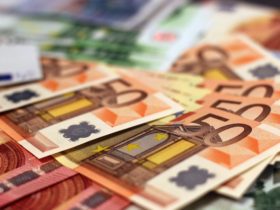- A mortgage refers to a loan used to purchase or maintain a home, land, or other types of real estate.
- The Czech National Bank increased the key interest rate by 0.75 percentage points, the largest one-time rise in over a quarter-century.
- The main reason for the rise of interest rates is the rising inflation connected to Covid-19 crisis.
The Czech National Bank’s recent decision to increase the primary interest rate by 0.75 percentage points, the highest over the last 25 years, triggered a domino effect of general raise of interest rates for most Czech Banks.
On Monday,ČSOB announced that beginning October 11, interest rates on three, five, and seven-year fixed mortgages would take up by 0.3 percentage points. The most typical five-year home loan will now have an interest rate of 2.99 percent. The figures announced by Česká spořitelna are even higher. The mortgage interest rates will rise to an average of 0.4 percentage points, while fixed mortgages will start at 3.14 percent per year for five and eight years.
UniCredit Bank and Raiffeisenbank are also anticipated to follow similar steps as well. Although economists had expected the Czech National Bank board to increase the primary interest rate in response to rising inflation, which surpassed 4% in August, predictions were proven more optimistic than reality.
Jan Sadil, a member of the Board of Directors of ČSOB, commented that house loans would remain an appealing offer for clients despite the progressive rise in rates. According to economists’ predictions, the increase in demand for loans won’t fall in a jump for home purchases. Filip Belant, a member of Česká spořitelna, said that the bank’s recommendation for clients is to choose long-term fixations, which will bring them a more stable account of repayments and a steady rate in their mortgage loans.









Leave a Reply